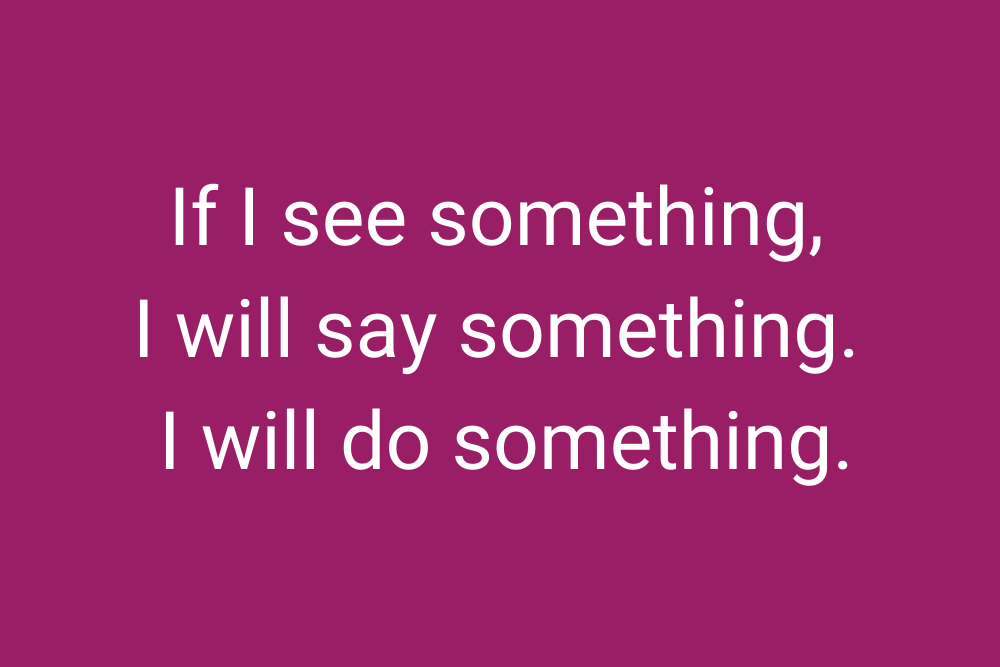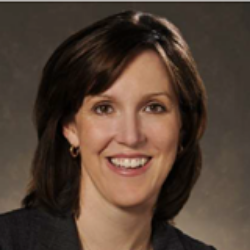
I’m Using My White Privilege to Speak Up Against Racism
Guest Blog: Repurposing “If You See Something, Say Something” to Look Out for Women of Color
Julie Groves is a trustee of The Women’s Foundation of Colorado and co-chair of WFCO’s direct-service grantmaking committee.
 Ten years ago as I underwent cancer treatment, I found myself mentally and physically exhausted from treating a potentially fatal disease. I barely had the energy to keep my own head above water and could not muster the strength to tell people what I needed or to comfort them about my circumstances.
Ten years ago as I underwent cancer treatment, I found myself mentally and physically exhausted from treating a potentially fatal disease. I barely had the energy to keep my own head above water and could not muster the strength to tell people what I needed or to comfort them about my circumstances.
In many ways, this is how I believe Black people must feel calling out racism and white supremacy. Particularly when their efforts are scrutinized or shrugged off by individuals who merely watch from the sidelines. While BIPOC people are the most affected, they are also the most depleted. We cannot expect them to navigate the path to racial equity alone.
We cannot expect BIPOC people to navigate the path to racial equity alone
For generations we have all piled into a boat and acknowledged that equity is “Just over there! At the horizon!” Given the dead weight of some of the passengers, our raft has not always been seaworthy, and we expect the same people to row, over and over. As a result, equity remains perpetually out of reach.
Too often people of color are not safe in their own country, and this is simply unacceptable.
People of color forge ahead, bone-weary, but we all have paddles. At this stage in our nation’s history, Black, Indigenous, Latino, and Asian American Pacific Islander people should not be called upon to teach the rest of us how to row; they have enough to do.
After 9/11, this country united in many ways
After the terrorist attacks on September 11, 2001, this country united in many ways. One of the more memorable campaigns dedicated to preventing future terrorist attacks on our soil urged us: “If you see something, say something.” On one helpful hand, this prompted individuals to alert authorities in airports to unattended baggage and to investigate chat room posts that provided step-by-step instructions for home-made bombs. More problematically, it also encouraged anti-Muslim profiling.
Black Lives Matter wants to recontextualize “If you see something, say something.” Instead of calling upon communities to surveil each other, it encourages looking out for our neighbors. The movement asks us to be more cognizant of our role in speaking out against systemic racism.
I do not have the answers, but I’m willing to take action
I am a 50-year-old white woman who was born and raised in Denver. I do not have the answers, yet I am willing and able to repurpose this call to action. Here is where I commit to picking up the paddle:
- Calling out implicit biases and white supremacy in our culture, laws, and hiring practices. Sometimes, this may mean I will need to have uncomfortable conversations with friends, family, and neighbors.
- Contacting my legislators when I see opportunities to promote gender, racial, and economic equity.
- Making sure there are women of color at the table where decisions are being made and supporting their leadership.
We can make “If you see something, say something” work again – to eradicate racism
Once upon a time, we were unabashed in our collective consciousness that if we wanted to keep our nation safe, it was incumbent upon each and every one of us to pay attention and to speak up. We can make this work again – but to eradicate systemic racism.
Too often people of color are not safe in their own country, and this is simply unacceptable. Racism, in all its insidious manifestations, attacks our families, communities, and nation.
The signs already exist; no new marketing campaign required. When I see something, I will say something. I will do something.
See The Women’s Foundation of Colorado’s Board Statement, “Black Women and Women of Color Cannot Carry the Burden of Transformation Alone.”

